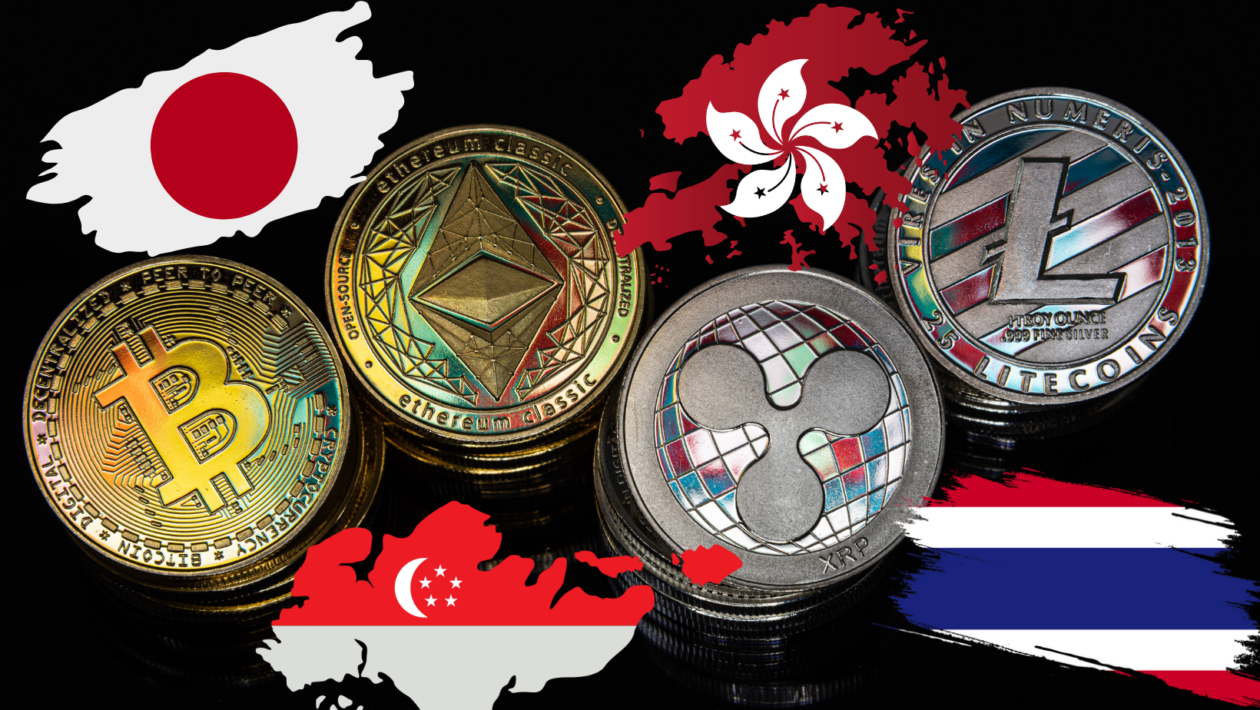Tokenization, the process of digitally representing assets, rights, or items of value through a smart contract on a blockchain, has gained significant attention in recent years.
By enabling assets to be divided into smaller tradable units, tokenization has the potential to revolutionize the funding and capital model across many different industries. What may have previously been a non-bankable real-world asset can find its way into the financial ecosystem, becoming accessible to a wider range of investors.
Asia has been at the forefront of tokenization trends. Jurisdictions like Thailand, Hong Kong, Singapore and Japan have been proactively implementing regulatory frameworks to facilitate the growth and adoption of tokenization. While the United States and others continue to grapple with the legal lexicon and treatment of tokenized assets, Asian countries are providing the breeding ground for innovation in tokenization.
Tokenization as a growth driver
While tokenization is still far from being a mainstream investment vehicle, it could present significant economic benefits.
Besides providing additional liquidity to an asset, tokenizing assets improves operational processes, squeezing cost savings and potentially disintermediating the middleman. Blockchain technology can be used to bring greater operational efficiencies than what is presently available in the operational set-up of a traditional financial system. As such, bringing a real economic asset onto a blockchain by tokenizing such assets can facilitate faster settlement times, boosting market efficiency and reducing counterparty risk.
Secondly, fractionalization is arguably one of the biggest game-changers brought about by tokenization. The ability to divide previously indivisible assets allows for easier and more affordable access to digital assets, as users no longer need to purchase an entire unit of an asset to participate in its ownership. This means that smaller investors can participate in investments that were previously only available to larger investors, thus democratizing access to investment opportunities.
Asian jurisdictions are already seeing how tokenization can have tangible, positive impacts on the real economy. For example, Japanese real estate firm Kenedix announced its fifth digital security backed by a hotel in Sapporo City. The particular innovation with this issuance is that, in addition to the digital security, securities owners are given a utility token that can only be exchanged for souvenirs on-site at the hotel, therefore encouraging in-person visits and driving growth. Thailand has also witnessed notable tokenization projects across several sectors, including real estate, entertainment and the media.
Asia leads the way in tokenization regulation
Examples of real-world benefits of tokenization are possible but require clear regulatory frameworks where legal terminology is properly defined. Tokenization undoubtedly blurs the line between traditional and emerging digital financial systems, leaving regulators, at times, struggling to navigate this new world.
While the likes of the U.S. are grappling with how to regulate digital assets, Asia is making big strides in defining tokenization and providing the necessary regulatory guardrails for innovation to thrive.
Thailand, for example, has taken significant steps to regulate digital assets and support the growth of tokenization. The Emergency Decree on Digital Asset Businesses, introduced in 2018, provides a regulatory framework for offering investment and utility tokens, and operating digital asset businesses in the country.
Japan has implemented clear guidelines indicating how digital tokens are to be regulated under an amendment to the Act on Settlement of Funds and the Financial Instruments and Exchange Act. As a result, security tokens are deemed as “interests in a collective investment scheme that are represented by tokens.” There are clear lines to adopt when promoting security tokens and the type of assets being distributed.
In Hong Kong, recent guidance allows tokens that meet certain criteria to be eligible for retail investors. With its new regulatory framework for virtual asset trading platforms, Hong Kong has taken proactive steps to try to make it less complex and arduous for interested participants to tokenize assets and distribute them, which has been welcomed by the digital assets industry.
By providing clarity on the status of tokenized assets, these Asian markets have laid the groundwork for further adoption of tokenization, which will undoubtedly boost not just the digital assets industry, but the broader economy too.
Lack of standardization hinders tokenization adoption
These Asian jurisdictions provide shining examples of how we can achieve regulatory clarity.
While most other countries are regulating only certain types of digital tokens under existing laws such as securities law and payment law, some Asian countries are introducing specific new rules to govern tokenization or fundraising activities through digital tokens.
Differences in regulatory frameworks and treatment across countries are making it difficult for tokenized assets to gain traction at a global level. Many tokenization projects are global or multi-jurisdictional in nature, meaning that some level of standardization — particularly in regard to anti-money laundering and counter-terrorism financing (AML/CFT) laws, accounting and taxation — is crucial for facilitating cross-border transactions and ultimately driving adoption.
It is abundantly clear that steady guidance from international regulators is sorely needed. Clear taxonomy is crucial for legal purposes. Providing guidelines for token classification and determining implications under different areas of law is essential for market participants to understand how their projects will be regulated and to avoid potential enforcement actions.
What the future holds
Tokenization is already instigating a paradigm change in traditional banking and opening up new opportunities for the securitization of non-bankable and real-world assets. Real estate, environmental sustainability and agriculture are just a few of the industries that stand to gain from tokenization as legal frameworks improve and offer clearer norms.
Tokenization creates the foundation for a more equitable and effective financial ecosystem by facilitating alternative financing, encouraging innovation and boosting liquidity. Countries across the APAC region are aggressively strengthening their legislative frameworks to enable this game-changing technology, establishing them as essential actors in the continued evolution of the financial markets.
While the rest of the world is now starting to catch up in this area, it is clear that Asian markets have got a head start on understanding how appropriate regulation can yield real-world benefits of tokenization. With further appropriate regulation and standardization across global markets, we can stimulate tokenization adoption and increase the chances of unlocking the full potential of how innovative technology can play a positive role in financial systems.






